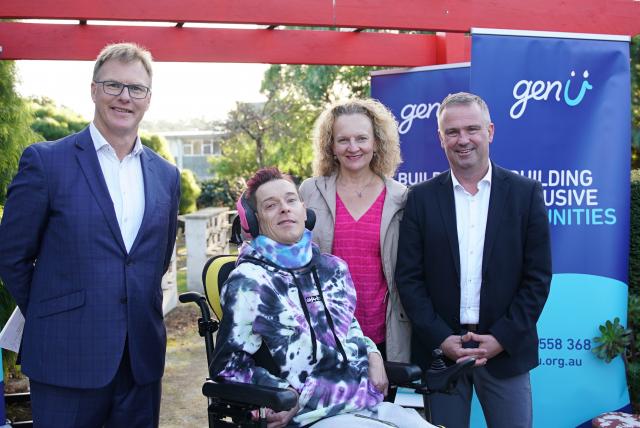
Geelong-based disability support provider genU has completed its merger with Li-Ve Tasmania at a formal event in Hobart.
Joining forces under the banner of genU, the two disability and aged care services organisations both bring many decades of experience as regional support providers to the union.
Over 420 Tasmanian staff and 220 clients will transition to genU, which will maintain offices in northern and southern Tasmanian to support its operations in that state.
Announced in March this year, the merger is a result of Li-Ve active efforts to find a partner to ensure its sustainable long-term future in Tasmania.
The expanded organisation will engage in additional services in both Tasmania and the Barwon and Grampians regions through funding from the federal government’s Aged Care Volunteer Visiting Scheme.
The funding will provide extra services for elderly people and volunteer opportunities across Victoria and Tasmania over the next three years.
Clare Amies, genU chief executive, said the addition of Li-Ve to the organisation would bring greater breadth and depth to its services.
“Through the combined strength of our organisations, we will be able to continue providing high-quality services and supports, as well as create pathways to benefit clients and more career opportunities for staff,” she said.
“The benefit of local knowledge combined with national scope, is an exciting prospect.
“We’re also excited to announce the expansion of our volunteer and student placement programs.”
Li-Ve Tasmania board chair and former Tasmanian Premier David Bartlett said he was looking forward to his transition to the genU board.
“The Tasmanian part of genU now makes up almost half of the organisation’s core disability services business and genU is Tasmania’s second largest disability support provider, so we have a significant platform locally and an opportunity to contribute on the national stage,” Mr Bartlett said.
“I’ll be working to make sure that there is continuity for people genU now supports locally and for their staff and communities.”






